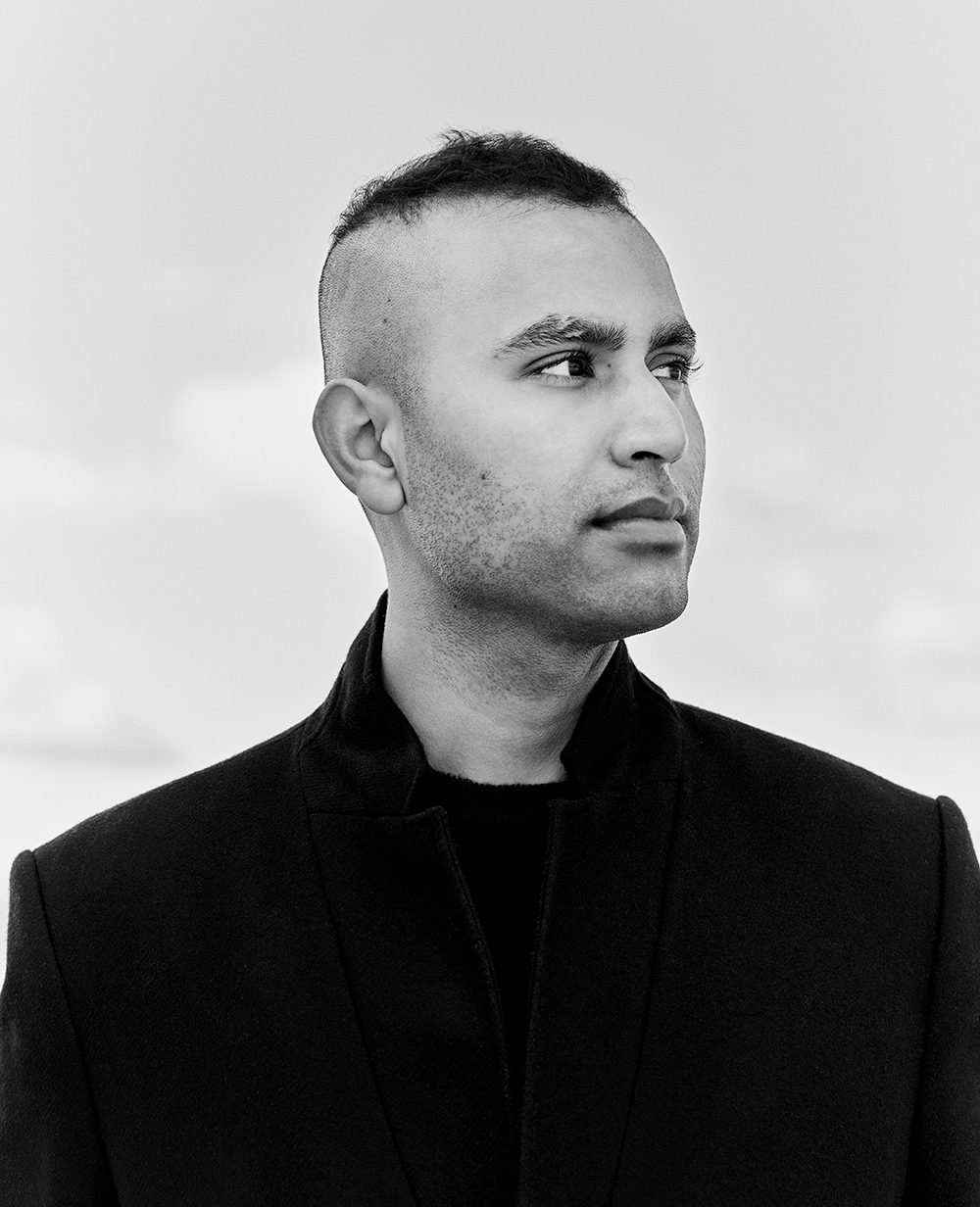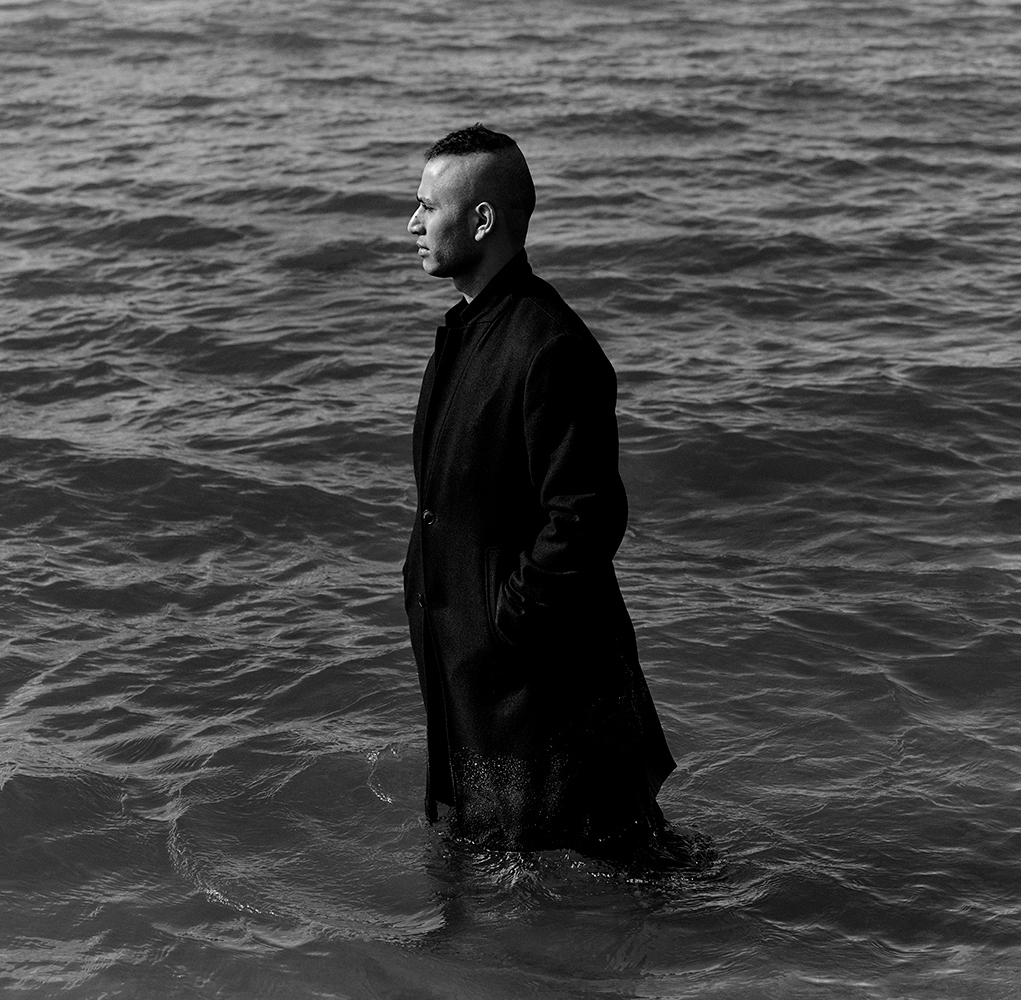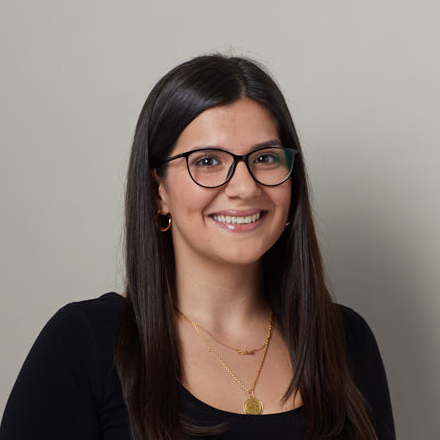Journey to Freedom
The inspiring and courageous story of fourth-year student Jaivet Ealom, who fled a brutal regime and found refuge in Canada
Turning an old factory space into a community centre for Rohingya refugees was not easy, but it was a deeply personal mission for Jaivet Ealom. There were many late nights cleaning, painting and sourcing furniture to create a warm and welcoming space that would eventually become the Rohingya Centre of Canada.
The organization now helps newcomers connect with services and, hopefully, find a community. It is a place Ealom wishes existed when he arrived in Toronto on a cold, snowy night more than five years ago. “When I came here, I had nowhere to go,” he says. “Knowing that our brothers and sisters who are new won’t have to start from scratch makes it all worth it for me.”
Growing up in Myanmar, as a member of the Rohingya minority, Ealom faced systemic discrimination and was denied citizenship rights. Like hundreds of thousands of Rohingya, he was forced to flee.
His attempt to become a refugee in another country turned into an agonizing tale of survival. He almost drowned, was detained multiple times – once for more than three years – and travelled through six countries before finally finding refuge in Canada in 2017.
Now 29, Ealom is planning to graduate in the fall with a double major in economics and political science from U of T. He has written a book, Escape from Manus Prison: One Man’s Daring Quest for Freedom, which details his triumphant and harrowing journey.
Stepping inside his first class at U of T just months after his arrival in Canada, Ealom says he felt anxious and found it difficult to focus. He is naturally a quiet and reserved person, and the scars of his journey were still fresh. “The environment was so new to me,” he says. “I was coming from [a detention centre] in a jungle. I wasn’t accustomed to the lights, the technology, the people.”
Although the change was overwhelming, he says his time at U of T has helped him make sense of the events that have unfolded in his life.
Ealom grew up in a town in the northwest of Myanmar. He could not travel outside a five-kilometre-wide radius without encountering military checkpoints and harassment – a state of existence he describes as a “roofless prison.” He witnessed horrific acts carried out by security forces and grew up without necessities others might take for granted. Living with two hours of electricity every second day was the norm and the government blocked access to higher education for Rohingya students. He came to understand that if he stayed in Myanmar, he would be jailed – or killed. “If you want to live, then you need to leave,” he says. “It was a decision I was forced to take.”
Ealom threw himself into a new world – leaving his family and everything he knew to travel to Jakarta, Indonesia, where the UN refugee agency had an office. He thought claiming asylum would be possible, but the process turned out to be chaotic. Facing years in limbo without the documentation he needed to work or study, he decided to leave the sprawling capital and take his chances on a boat to Darwin, Australia.
On the third day of the journey, water started pouring in through the vessel’s cracked hull. A lone fisherman spotted the sinking boat and called for help. When Ealom finally reached shore, he welcomed the feeling of sand between his toes. “I couldn’t quite believe I’d survived,” he writes in his book. “It was 15 June 2013, the day of my rebirth, and I quietly celebrated it – more than my actual birthday – every year since.”
Ealom found his way back to Jakarta, where he decided to try to reach Australia again. “This time, I bought a truck inner tube and a pump – so I would have a makeshift flotation device,” he says.
During the voyage, Australia’s then-prime minister, Kevin Rudd, announced that asylum seekers arriving by boat without a visa would not be resettled in the country. Without any knowledge of this change, Ealom felt a sense of relief when Australian officials intercepted the boat. “That lasted about 30 minutes,” he says. “I was given a paper at the detention centre that said ‘unlawful citizen’ and I thought, ‘I didn’t do anything wrong, there must be some miscommunication.’ But that wasn’t the case.”
He spent 148 days in a detention centre on Christmas Island before being transferred to Manus Island, in Papua New Guinea, where he would spend the next three and a half years of his life in prison.
He had grown used to the human rights abuses in Myanmar, but the conditions on Manus were just as bad. His cell was a “dark, hot, depressing steel box” and the detainees were subjected to the daily indignity of having to line up for the bathroom and for every meal. In the rotten food, he often found maggots and bits of gravel.
Ealom and many of his friends inside the prison got to their breaking point. “I was withdrawn from everything. I wasn’t really interested in living life,” he says. “Everything that happened inside the prison was structured in a way to dehumanize you.”
One day, a friendly caseworker gave him access to an e-book called Man’s Search for Meaning, by Viktor Frankl. Written in 1946, the memoir chronicles Frankl’s experience as a prisoner in Nazi concentration camps.
It took Ealom months to print out the entire book, which he sewed together by hand – a frustrating and painstaking process. But it was worth it. “That was when I got on my feet again,” he says. “The biggest take-away from that book was to separate the physical pain from your inner self and how to keep your inner self intact from the situation that’s happening around you.”
With indefinite detention ahead and the threat of being sent back to Myanmar looming, Ealom decided to flee again.
If you want to live, then you need to leave. It was a decision I was forced to take.”
Being observant came naturally to him. For six months, he collected as much information as he could – the prison guards’ schedule, flight times in and out of Manus. He snuck out after meticulous planning and help from the people around him.
He posed as an interpreter and made it as far as the Solomon Islands, several hundred kilometres east of Papua New Guinea. He altered his appearance and took on a new identity as part of a strategy to get a passport. “I taught myself Pijin, the local language, and I chewed something called betel nut, which stains your teeth red,” he says.
He took many risks and, against all odds, arrived in Canada on Christmas Eve in 2017. “I hadn’t slept or eaten in about three days when I saw the immigration officer at Pearson airport,” he says. When the immigration officer learned this, he went and got Ealom a sandwich. Ealom never imagined he’d end up in Toronto where he didn’t know anyone, but for the first time in years he felt like he could build a life.
With $45 to his name and no winter clothing, Ealom’s first stop after the airport was Seaton House, a shelter downtown. The chatter from the radios that staff members carried was triggering for Ealom – “I couldn’t sleep,” he says.
He made some connections through the Rohingya community in the city, and moved in with a family in Waterloo, Ontario. While he was working on his refugee claim, he travelled regularly by bus from Waterloo to Scarborough to visit his lawyer’s office. One day, Ealom found himself with extra time downtown waiting for the bus back to Waterloo.
He stumbled upon a tour of U of T’s St. George campus. “I was around Victoria College and thought, ‘Wow, these buildings are so nice.’ I saw a group of students and parents, so I thought I’d just tailgate them,” he says. He applied to U of T later that month. He was accepted, and was able to pay his tuition and living expenses through a part-time job and the help of the Ontario Student Assistance Program.
For the first semester, he sat at the back of the class and didn’t speak to anyone. He felt disconnected from his fellow students because of the age difference and vastly different life experiences.

Questioning authority in Myanmar and in prison could lead to punishment so the idea of challenging his professors was foreign to him. Ealom did not learn critical thinking in school in Myanmar, so he developed and honed that skill at U of T. In fourth year, he took an independent study course with Matthew Walton, an assistant professor in the department of political science. It was an opportunity for Ealom to delve into his interest in Myanmar politics and economics.
Together, he and Walton developed a study plan with questions Ealom was interested in investigating. He says the process felt collaborative, engaging and rewarding. “Independent study was helpful for me and might be for someone else who comes from an unconventional background,” he says. The course enabled Ealom to apply his unique life experience to his studies while at the same time drawing on academic theory and research to understand his life experience.
He is now considering law school after graduation. He hopes eventually to return to Myanmar and make meaningful systemic changes – ones that would grant citizenship rights to the Rohingya. “I feel this moral obligation to help,” he says, adding that he doesn’t fear returning to a place he once fled, as long as his actions don’t put his parents in danger.
Time has healed some of the trauma Ealom experienced. It’s an ongoing process, helped by knowing he has a safety net in Canada. “For most of my life, it’s always been people telling me where I can and can’t go – you can’t stay in Myanmar and you don’t belong in Australia,” he says. “Now, I know I can go wherever I want. I can come back to Canada, and I will be welcomed here. I can be myself.
“That’s something new to me.”







No Responses to “ Journey to Freedom ”
I am so glad that Jaivet Ealom finally made it to Canada. The people there are amazing and caring. And thanks to University of Toronto Magazine for running this incredible story.
I thank Jaivet Ealom for sharing his story of inspiration and strength. He is a phenomenal person. Wishing him all the best in the future. I hope one day he can reunite with his family.
What an incredible story. I was saddened yet inspired by Jaivet Ealom's experience. Canada needs him as much as he needs Canada. I wish him all the best in whatever he takes on and considers in his future.
Thanks for this article. Bravo, Jaivet Ealom!
This young man will be a change-maker and inspiration in whatever country he works. I hope that the University of Toronto will continue to update us on his life and progress. What an amazing and wonderful story this is!
Thank you for this admirable story!
I was fascinated by the story of Jaivet Ealom, not only for the courageous way he faced the obstacles that he encountered on his life's journey, but also because I, too, turned my life around after reading Viktor Frankl's Man's Search for Meaning.
I wish him all the success in the world as he embarks on his missions, and advise him never to forget Viktor Frankl's tenet that "the last freedom anyone has is the freedom to choose how you deal with any situation" (abbreviated text).
An inspirational story of courage, will and determination.
Jaivet Ealom such persistence! It is hard to imagine that he pushed through such daunting obstacles and horrors. He will do well in life. I congratulate him on his university endeavours and plans to help the Rohingya. So timely that Victor Frankl's book became available to him in the midst of a stage of deep suffering in Manus.
Good luck to Jaivet! And welcome to Canada and U of T. I hope he gets all he deserves after his heroic and herculean effort to come to Canada. I wish him well and hope he remembers to bleed blue!
What an inspiring story. We could all learn from Jaivet Ealom. What a brave and resilient human being.
Amazing story of courage, determination and focus. A true inspiration for all of us. Thank you for sharing.
This is a remarkable story, showing human resilience, strength and courage. I wish Jaivet peace, happiness and success with all of his future journeys. He has already succeeded and will continue. Thank you for sharing this story.
Jaivet Ealom, thank you for sharing your heroic story -- the struggle and the success of which is repeated every day in the world. Canada truly is the recipient of extraordinary people.
What an incredible story. Jaivet, you inspired me with your resilience and sheer determination. In Canada, we take for granted many things. Real people, with real life stories like yourself remind me to be grateful to be Canadian. I wish you the very best in life.
As an Australian, I feel ashamed at the heartlessness of our government’s harsh refugee policy. Manus Island was a hellhole. To survive it, and to thrive, is a tribute to the character of Jaivet Ealom. He deserves every success, and I’m sure that he will give back and inspire and support others.